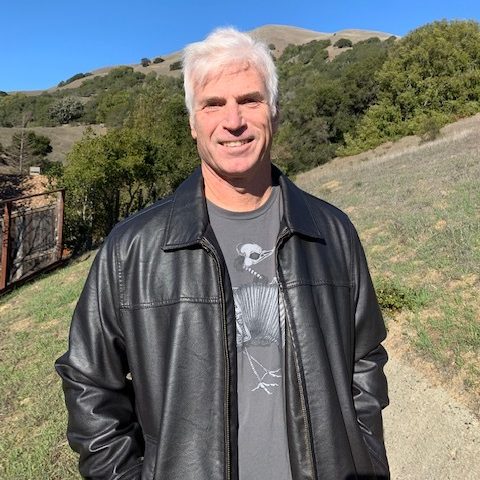Oppenheimer is an excellent movie. The story beautifully describes the deep and complicated man who led the project to create the atomic bomb. We have become accustomed to the idea that these weapons could have at any time extinguished all of humanity. The movie brings the genesis of that terrifying reality into stark focus.
At the beginning of the movie there is a reference to the Greek Titan Prometheus – a god who steals fire from Mount Olympus and gives it to humans. Zeus punishes Prometheus for this transgression to an eternity of torture, because the fire is symbolic of something more. The fire that he brings to Earth represents knowledge, technology, and civilization itself.
The movie is based on a book entitled American Prometheus, written by Kai Bird. Oppenheimer is cast as Prometheus: he brings the fire of the atomic bomb to humans and is punished to eternal misery by the powers that be. The powerful political players who punish Oppenheimer are cast as Zeus.
There is a different way to envision the myth of Prometheus in the story of Oppenheimer, one that also incorporates Pandora.
After Prometheus bestows the fire to humanity, Zeus doesn’t stop at punishing only him. As a measure against his offensive sin, Zeus also creates Pandora: the irresistible goddess spawned from clay for the purpose of unleashing a host of afflictions on humankind.
Pandora brings a jar containing her horrible ills: sickness, death, greed, envy, suffering, strife, famine, and insanity.
Pandora is the terror of knowledge and technology, brought about by the singular act of civilization.
In this rendition of the myth, Oppenheimer receives the fire that Prometheus brings – the knowledge, the technology, and the power. But who is captivated by Pandora when she opens her jar?
The movie has the answer to that one as well. In addition to showing the man as he was, the movie very importantly dwells on the civilizational impact of Oppenheimer’s life embedded in the power structures of war. The movie effectively displays the interrelation of those who create instruments of power and those who implement them.
One of the prominent interactions in the movie occurs between Oppenheimer and Atomic Energy Commision director Lewis Strauss. After the bombs are dropped and the impact has time to sink in, there is a struggle to determine the direction that America will take with this new technology. In a bold power move, Strauss attempts to tarnish Oppenheimer’s reputation and exclude him from any future development of atomic technology.
Part of the reason given in the movie is personal revenge, but the subtext of motivation to gain power is clear. Strauss is interested in continuing the atomic program, barreling ahead with the development of newer and more powerful weapons, with all the financial backing and power that results. Oppenheimer, however, has misgivings about the destructive force he has unleashed; he entreats politicians and the public directly to consider an open dialogue with the rest of the world.
People in power tend to want to keep it, so Strauss sets out to ruin Oppenheimer’s life. Control the message, control the dissent.
Another main character is General Leslie Groves, the military director of the project, informing Washington of progress and garnering new resources as needed. He is portrayed as a dutiful soldier committed to his mission, but also as a man who believes in it. The Nazis are a threat to humanity and must be stopped at any cost. He has no qualms about consorting with Pandora and her jar.
There are other characters in the movie that are relevant to the interrelation of the truth-seeking scientists and power-seeking politicians.
Edward Teller, loyal to the regime, continues the work on atomic energy and weapons after the war ends. He is known as the father of the hydrogen bomb. The movie portrays him as a man who desires intensely to continue on the path of knowledge, no matter how destructive the consequences. He thus aligns with those who can provide him this chance, perhaps unwilling to admit that he himself is adding more evil to Pandora’s jar.
Richard Feynman, with only a bit part in the movie, is shown playing bongos at the first ever detonation of the atomic bomb, the Trinity test. Feynman describes his celebratory reaction to the explosion in a 1975 lecture called Los Alamos from Below. In retrospect, playing the bongos after the demonstration of a weapon that will undoubtedly kill tens of thousands of people seems disconnected. But he is not alone. Others join in, celebrating their new knowledge, holding the fire of Prometheus – perhaps yet unaware of what Pandora is bringing.
Something not shown in the movie, but relevant to this point, is Feynman’s disdain for the security at Los Alamos. In his book Surely You’re Joking, Mr. Feynman, he describes how he frequently exposes the security by picking locks at will. When he announces to the people in charge how easy it is, and that the security should be tighter, they focus their efforts on him, and whether his character is suspect. As he points out, they were more concerned about him than the locks. Feynman is surely no friend of the regime, and they let him know it.
Many years later, of course, Feynman made news again by exposing the incompetence of those who sacrificed safety in the name of agenda in the explosion of the space shuttle Challenger.
Like Oppenheimer, Feynman was seduced early in his career by the excitement of trying out theories in real life, no matter how destructive. But he later recoiled and spoke out against the disingenuity of his government overlords. He held the fire of Prometheus and acknowledged great pain at the opening of Pandora’s jar.
Another key figure in the actual Manhattan Project, but left out of the movie, fits perfectly into this Promethean puzzle: John von Neumann. Hardly anyone but mathematicians and physicists know his name now, but he had an enormous impact on the advancement of these fields, and on the US government’s embrace of them.
Von Neumann enters the Manhattan Project when there is uncertainty on the best way to implode the core of the bomb to start the chain reaction of cascading neutrons. Despite having a huge staff of the top physicists in the country, Oppenheimer reaches out to von Neumann in a letter:
We have a good many theoretical people working here, but I think that if your usual shrewdness is a guide to you about the probable nature of our problems you will see why even this staff is in some respects critically inadequate.
Oppenheimer is deeply impressed with von Neumann and keeps him close during the remainder of the project.
Given the “containment” principle of security described in the movie, it may be surprising to hear that von Neumann was one of the few scientists allowed to come and go as he pleased. Surely his government connections had something to do with that.
After the Manhattan project, von Neumann continued on, as Teller did, ever expanding the role of government in science and the additional power that was generated as a result. In his biography The Man from the Future, Ananyo Bhattacharya describes how von Neumann had a hand in the development and deployment of the first electronic computer, ENIAC.
The government first commissioned the engineers of ENIAC to produce ballistic firing tables during the war, but that task was not completed as the project went well over time and over budget. Von Neumann convinced the government officials that this wide-reaching tool could do so much more and funding was continued.
Indeed, in December 1945, when ENIAC was finally ready to perform and the firing tables were no longer needed, von Neumann applied it to the difficult calculations necessary to build Teller’s hydrogen bomb, ultimately making the creation of that weapon a reality.
Earlier that spring, after having the future of the computer soaking in his mind, von Neumann slipped into a 12-hour slumber. Deep in his subconscious, the Promethean power of the computer comes to light, and upon awakening, he proclaims to his wife that what they are creating
is a monster whose influence is going to change history, provided there is any history left, yet it would be impossible not to see it through…
He worries aloud that if they do not keep pace with what they created, those same machines could be more dangerous than the bombs he was helping to build.
Von Neumann also made significant contributions to game theory, and personally utilized it directly to advise on military strategy during the war. Because it’s a game, right?
Truly von Neumann was in touch with the Promethean gift, and the Pandoran consequences of his actions, and yet he continued to pursue the fire throughout his life.
There may be a good reason why most people haven’t heard of von Neumann. As Strauss says in the movie, “Real power always lurks in the shadows.”
This mythical characterization of historical events is important for its deeply meaningful ideas about humanity, but it is also relevant to our current times. The sickening vision of mass extermination is not with us now, but we can easily see the parallels of Oppenheimer and Strauss to the current agents of power in their reaction to the pandemic.
Who are the Oppenheimers?
Those who can’t help themselves in pursuing any idea they have, no matter how dangerous. They must create a new virus through gain-of-function research. More virulent, more deadly.
What’s their justification?
We must understand how they work so we can combat them!
How does this compare with Oppie’s reason?
We must create a weapon so powerful that we can end all wars!
Who are the Strausses and the General Groves? The government actors who always perceive the enemy ready to kill us all? The ones who believe that we must control all future threats? Whose power grows with each new emergency?
They are Fauci, Birx, Gates, Bourla, and the others.
What’s the reason they give?
We must eradicate viruses forever!
Control the message, control the dissent, control the population.
The people who grasp at the fire of Prometheus are all very frightening. They are brilliant, true. They have the capacity to do great things, and have accomplished them. But it’s easy to see how they can be seduced by their desire for knowledge, the fruit of the tree, access to fire.
The captivating Pandora awaits.
After the bomb was tested, Oppenheimer realized immediately what he had done. In a 1965 interview, he was asked what went through his mind at Trinity. He said that twenty years earlier he had this thought from Hindu scripture in the Bhagavad Gita: “Now I am become death, the destroyer of worlds.”
Perhaps Oppenheimer was Lord Krishna or perhaps he was an American Prometheus. Or perhaps that potential is in all of us – to grasp at the fire, or if we are in positions of power, to exploit it.
We have had another experience with Prometheus and Pandora in the past few years. Some created a dangerous virus only because they could. Some created a dangerous vaccine only because they could. Others exploited both the pandemic and the vaccine to exalt their status and wealth and power, and to unleash the miseries locked in a jar.
Prometheus has given us fire. Pandora has followed.
Thus the terror of civilization.
Join the conversation:


Published under a Creative Commons Attribution 4.0 International License
For reprints, please set the canonical link back to the original Brownstone Institute Article and Author.









